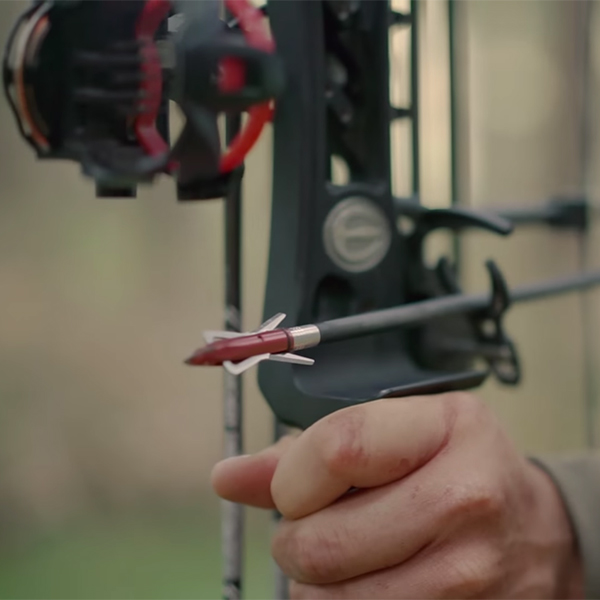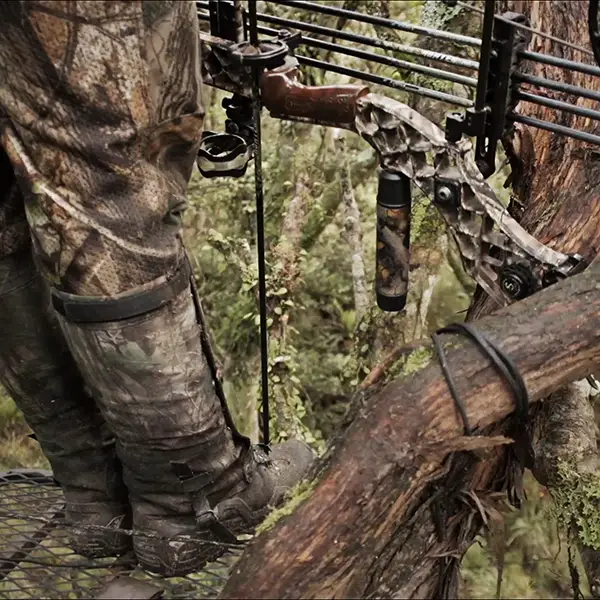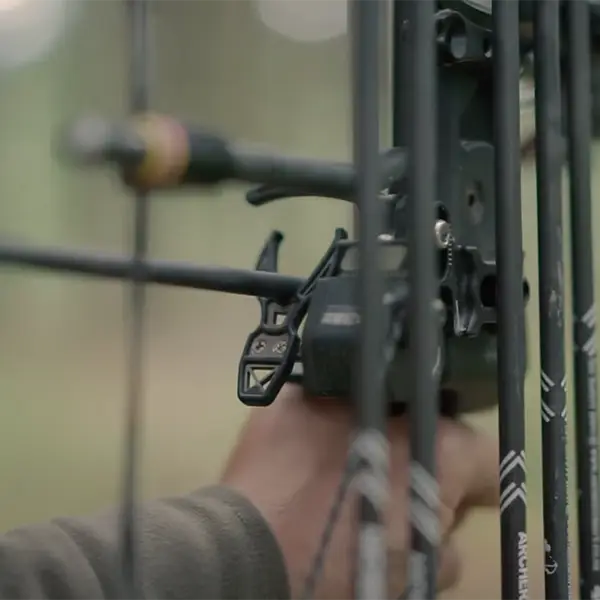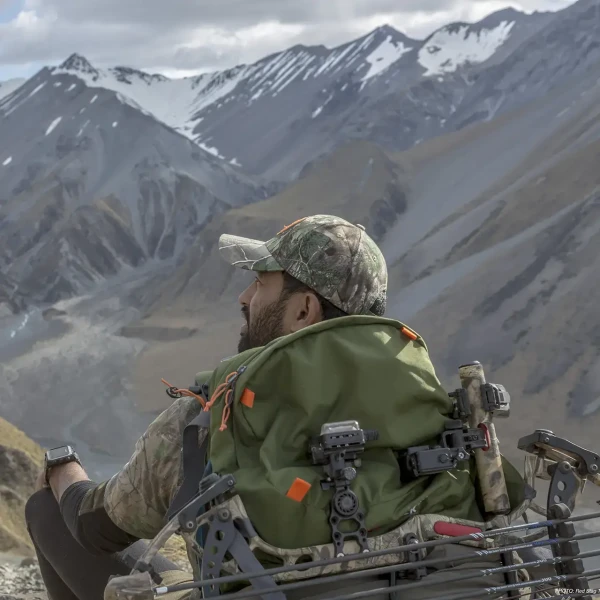As the name suggests, bowhunters use a bow and arrow to hunt for game. This type of hunting has a strong focus on stalking so often requires greater patience than other types of hunting and terrain with better concealment, such as uneven ground, ridges, bushes and trees, and even tall grass.
Although bows and arrows are not considered to be as dangerous as firearms and you do not need a licence to use them, they need to be treated with respect and diligence as with any other equipment designed to kill an animal.
Preparing for a bow hunting trip is similar to preparing for any other big game hunt, but there are a few additional things to consider

Top things to consider for bow hunting:
- Ensure your bow and arrows are in working order before, during and after the trip.
- Know your firing zones.
- Identify your target beyond a doubt.
- Follow safe handling practices for your bow and arrows.
- Wear blaze gear.
- Know where everybody is during the hunt.
Find out more about preparing for a hunt here.

Before the Hunt
- Choose the correct type of arrows and tips for the hunting you are planning. Fibreglass arrows should never be used for hunting.
- Check your arrows for damage. Make sure your arrows are in good condition.
- Maintain your bow. Inspect the strings of your bow for fraying and check the limbs for stress fractures. This will ensure the bow performs effectively and safely.
- If you’re a newcomer to bow hunting, practice and learn from others before going out on a hunt.
On Your Hunt
- Before firing, identify your target beyond a doubt as your game species. To do this, go through the same steps as you would if you were hunting with a firearm. Find out more about identifying your target here.
- Know your firing zone. Arrows have a high risk of ricochet. It is your responsibility to know where every arrow you fire could go.
- When hunting with nocked arrows, wait until you are in your final firing position before you attach the release mechanism onto the bowstring.
- Broad-head arrows are very sharp and can remain in the animal after being shot. When dressing animals, be aware of the arrowhead to avoid injury.
- After making a shot, check the arrow for damage. Damaged arrows should not be re-used.
- Help others see you by wearing blaze gear as you would when hunting with a firearm. This will make you visible to other hunters.
- Take your time. Take regular breaks to keep your mind sharp and conserve energy for the walk out.
- Stay alert. Be aware of your surroundings, the people in your hunting group and the changing conditions. Do you know where you are on your map? Where is everyone in your group? When will it get dark?


After the Hunt
- Check for any damage before stowing away your bow and arrows.
- Store bows and arrows safely and away from any children that might see them as a toy. The best place to store your equipment is in a locked cabinet.
What to Do Next
Continue your preparation with our online resources, there is still plenty to learn to ensure for a safe and enjoyable hunt.
Explore Our Resources
- Our skills section | Learn Navigation, River Safety and other essential outdoor skills
- Our hunting videos | Learn the 7 Basic Firearms Safety Rules and many more useful hunting tips
- Department of Conservation | Find out where you can hunt and about the species you are targeting
- NZ Police | Learn how to get your NZ Firearms Licence